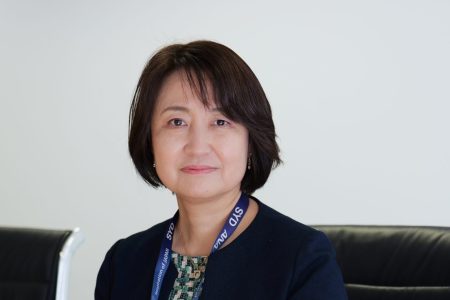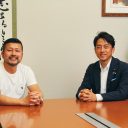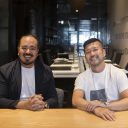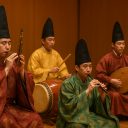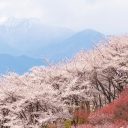
In Conversation Vol.27
In this ongoing series, Yoshinori Sakuno, founder of Japanese cross-cultural marketing company doq®, and currently Chairperson of Nichigo Press, engages in a dialogue with key figures in Australia-Japan relations and business. This time, we welcome Kumi Taguchi, born to a Japanese father and an Australian mother, who works as a journalist and newscaster for the public broadcaster SBS.
Photography: Satoko Clarke, Translated from Japanese by Sachi Kobayashi
PROFILE

Kumi Taguchi
Moved from Hong Kong in 2005 to work as a producer/anchor of an English language news program. Since 2010, she has been working in Sydney as a producer for ‘ABC News 24’, and as a newscaster/reporter for the public broadcaster SBS’s news program ‘SBS World News’. Since 2011, she has been a senior news anchor for ‘ABC News 24’. She has also worked as a commentator for the ‘Invictus Games’, and the opening and closing ceremonies of the Tokyo Olympics. She currently hosts SBS’s flagship news and current affairs program, ‘Insight’.
PROFILE

Yoshinori Sakuno
Founder and Group Managing Director of doq®. After gaining experience in the APAC and Western markets at the U.S. advertising agency Leo Burnett, he founded doq® in 2009. He holds an MBA from University of NSW’s AGSM and a Master’s degree in Digital Media Management from Hyper Island Singapore. He was a finalist for the “Ethnic Business Awards” that honour immigrant entrepreneurs and received the 2021 NSW State Export Award for the Creative Industries sector’s Best Company.
Sakuno: First of all, could you tell us about your career in journalism and broadcasting up to the present?

Taguchi: I first got involved in journalism about six months after I graduated from university. I was really eager to work in the media industry, so I got a job as a ‘general assistant’ at ABC. It was one of the lowest paying jobs in Sydney about thirty years ago. I was on a current affairs show called “7:30,” and I did tasks like answering phones, picking up clothes from the dry cleaner, calling couriers, ordering birthday cakes, and taking messages from the answering machine. But it was a very fulfilling job. I think it might have been the best job I’ve ever had. The people I met then are my friends to this day. After that, I worked in radio for a few years and thought hard about how to become a “storyteller”. In my early days, I felt like I was stuck in administration and production work, and thought, “No, this isn’t it. I want to tell more stories.” The biggest turning point was moving to Hong Kong, I worked there for six years.

Sakuno: Why Hong Kong?
Taguchi: My partner at the time got a job in Hong Kong. I was about thirty years old, and I got a lot of freelance work from several local TV stations. There was a big demand for English broadcasts in Hong Kong, and there were many English-language media outlets. If you could speak English, then you could find good work. I worked at local TV stations for a few years; doing numerous interviews, reading news, and making documentary programs. If I had stayed in Australia, I don’t think I would have been able to have had those experiences. In Hong Kong, I was able to make the most of my English and media skills. That being said, when I returned to Australia, my skills from Hong Kong were not highly valued. It was like, “Yes, you do have experience, but nobody in Australia knows you.” I had to start over. I got involved in production and read the news during the midnight hours on a 24-hour program. I restarted my career in Australia when I was about 35 years old.
Curiosity led to journalism

Sakuno: Could you tell us a bit about your background and upbringing?
Taguchi: My mother was a very hard worker. I grew up watching her, and always disciplined myself. As both a child and a teenager, I always liked getting good grades at school. I worked very hard. Rather than competing with others, I think I wanted to win against myself. When playing sports, my competitive side comes out, but I don’t feel as though I want to beat others. I didn’t have the “I’ll do whatever it takes” mindset, and many people told me “You won’t succeed because you lack competitiveness”. But, I always believed in myself as a ‘storyteller’ and was fascinated by connections with people and the work that we were doing. And so, through involvement in 24-hour news cycles, various programs, and hosting major live events, I think I found my unique position. I think this all comes back to my experience with playing the violin. I started playing the violin at a young age and went to university on a violin scholarship. I practiced every day without fail and I would see improvement, then hit a plateau, and it was a repeating cycle. Even so, I didn’t give up playing, and never quit. Those skills have been a great support in my career.
Sakuno: Who or what led you to the world of journalism and broadcasting?
Taguchi: I think it was my curiosity that led me to journalism. Why is the world the way it is? Why do people go to war? Why are there people who have homes and people who don’t? Inequality, poverty, refugee issues… Such questions have been swirling around inside of me since I was little. I was also interested in mysteries, such as the assassination of former U.S. president John F. Kennedy. Since I was a teenager, I wanted to understand how the world works, and to work in such fields. I read many books about the Vietnam War, books by journalists who went to Vietnam. What does it mean to convey stories of people’s joy and suffering? I was very driven by that. There are some people I have greatly respected as journalists throughout my career. For example, Kerry O’Brien, who was the host of the first program I was involved with. He is a very famous Australian journalist. He was very professional, very smart, and worked incredibly hard. I have always been drawn to people with strong values. Whose motivations are not fame or money, but facts and righteousness. Whether they are journalists, writers, storytellers, documentary makers, no matter the form of media, I am fascinated by those who pursue truth and empathise with others.

Sakuno: Where did these values, and your constant questioning of “Why?” come from?
Taguchi: I don’t think it was directly influenced by my family. I grew up with my mother and my sister, but we didn’t necessarily talk about helping the poor or “the importance of donating to charities”. My father (the late Akira Taguchi, former Asahi Shimbun reporter, former ABC Radio Australia journalist. Contributor to the newly launched Nichigo Press in the 1970s.) and I had no contact since I was 12 years old, but I reunited with him in my mid-twenties. My father didn’t teach me anything about journalism or storytelling, but I read many of his articles written in English. He worked as a reporter for Asahi Shimbun. My father was very conscious of facts, righteousness, and fairness. My interests were the same as my father’s. He had strong beliefs and was straightforward and sensible with others. I grew up apart from my father, so there might be a debate about whether it was my father’s genes or the environment I grew up in that shaped me, but I feel deep down that these values were inherited from my father.
Sakuno: How do you perceive cultural identity? How has your cultural background with Japanese roots influenced your approach as a journalist?
Taguchi: Where do I belong? Am I Australian? Am I normal? Do I want blonde hair and blue eyes? In a mixed cultural environment, you don’t know where you belong, and many questions arise. In storytelling, I think that by feeling like I don’t belong anywhere, by being in disharmony with society, I can stand on the same perspective as those who feel “out of harmony”.
Hospitality is a Japanese cultural value

Sakuno: I saw a program where you reported on Japan. It was very interesting.
Taguchi: The story about the Unification Church issue on ‘Dateline’ (SBS’s current affairs program), right? I went to Japan to report about a year ago. It was a very personal journey, questioning how the relationship between former Prime Minister Shinzo Abe and the Unification Church was revealed. Was the church a cult?
Sakuno: What is the most important aspect of Japanese society to you? Are there any cultural values that the international community does not fully understand?
Taguchi: Politeness and compassion, always bringing gifts (when meeting people). Appreciating the time and effort people give you, and not taking it for granted. It’s the spirit of hospitality, I suppose. I think Japanese people also have a wonderful sense of humour on a different level (than overseas). There is also an incredible richness in attention to detail and creativity. I love the beauty of everyday life, the value hidden in things, the simple beauty of a vase with a single flower. There is something philosophical about it that I am fascinated by. Even in my house, while not quite minimalist, we have one small vase which expresses Japanese beauty. We eliminate unnecessary items and avoid clutter. Also, everyone who visits Japan says that the Japanese are extremely polite. It’s not just a facade, there is a genuine cultural politeness.
Sakuno: Can journalism deepen an understanding of Japan in this way?
Taguchi: From that perspective, it’s unfortunate that Australian media no longer dispatches as many correspondents to Asia as before. Most major commercial broadcasters don’t have branch offices in Asia. So, for example, Japanese news often focuses solely on natural disasters. It’s always the same predetermined topics; communities strengthened by disasters, robots, Shibuya crossing, or cherry blossoms in bloom. Real human stories are lacking. How about the cost of living in Japan? What are citizens worried about? Are rates of education and employment okay? Questions like these. If we only prioritise budgets and profits, without looking at countries through proper, considered lenses, then they will become a series of extreme stories. They (the Australian Media) should do more. Of course, I also read news from Japan, but sometimes I feel, “this is different from what I’ve seen and experienced.” While financial and economic news tends to dominate, wouldn’t everyday human-interest stories promote understanding between people? On Instagram, you can see wonderful travel scenes, beautiful people, and delicious meals, but that’s not real, everyday life.

Sakuno: The reason I started my company was to introduce good brands, products, and services from Japan.
Taguchi: When you go to Kyoto’s Ninen-zaka and Sannen-zaka, you’ll find lots of small shops selling items like shichimi chili pepper and gourd containers. I’ve always wanted to produce stories about shops like that. I think it’s because all of Japan is contained within those little stores. They’re not about “selling new things because times have changed.” They specialise in one product, they’re family businesses that have been passed down through generations. I think there’s a lot packed into each story. It could become a creative documentary. Japanese families going grocery shopping or taking their children to school. Worrying about expensive bills, or what to do with elderly parents. I would like to tell stories about ordinary everyday life. For viewer’s, they’re not just stories of a faraway, foreign land. Stories that reveal shared worries, where empathy is felt on a human level, could connect people from Japan and Australia.
Sakuno: Please, produce a program like that on SBS to deepen the bonds between people from Japan and Australia! Now, from your unique perspective, how do you view the relationship between Japan and Australia?

Taguchi: Japan has increasingly been positioned as an indispensable (quasi-)ally. Australian people see Japan mainly from the perspective of trade and tourism, and so in terms of importance, I feel like it’s been off the radar for a while. However, compared to twenty years ago, the power balance in Asia has changed significantly. The relationship between Australia and Japan is already politically important, but I feel that it will play an even more crucial role in the future. Although it may not often behave that way, Japan is a powerful nation that has great influence in Asia. Our values are very closely aligned. When I was in my twenties, we were still suffering from the aftermath of WWII (where Japan and Australia fought each other). During the war, many Australian prisoners of war were forced to suffer by the Japanese army. At that time, there were people who didn’t want to touch sushi. However, twenty to thirty years have passed, and the situation has changed significantly. I feel that Japan is beginning to be seen not only as a political (quasi-)ally, but also as a cultural (quasi-)ally. It makes sense; I believe that Japan and Australia share a stronger web of values that we might assume.
Sakuno: Nichigo Press is read by three main groups; working holidaymakers and students, corporate expatriates, and permanent residents. Could you give our readers a concluding message?
Taguchi: We Australians open our hearts and welcome people from all over the world. We love Japan and the Japanese people. I believe that those who come here for study, work, or to live here can contribute much more to Australia than they may realise. Australia thrives thanks to people coming from around the world. So please, share who you are. By doing so, we might find that we have much more in common then we might expect.

Kumi Taguchi is host of SBS’s ‘Insight’, Australia’s favourite show for nuanced discussions around taboo topics. Insight fearlessly delves into issues and Kumi Taguchi provides a safe space for ordinary people to talk to each other without judgement. You can watch ‘Insight’on SBS on Tuesday evenings at 8:30pm, or stream it for free on SBS On Demand.


